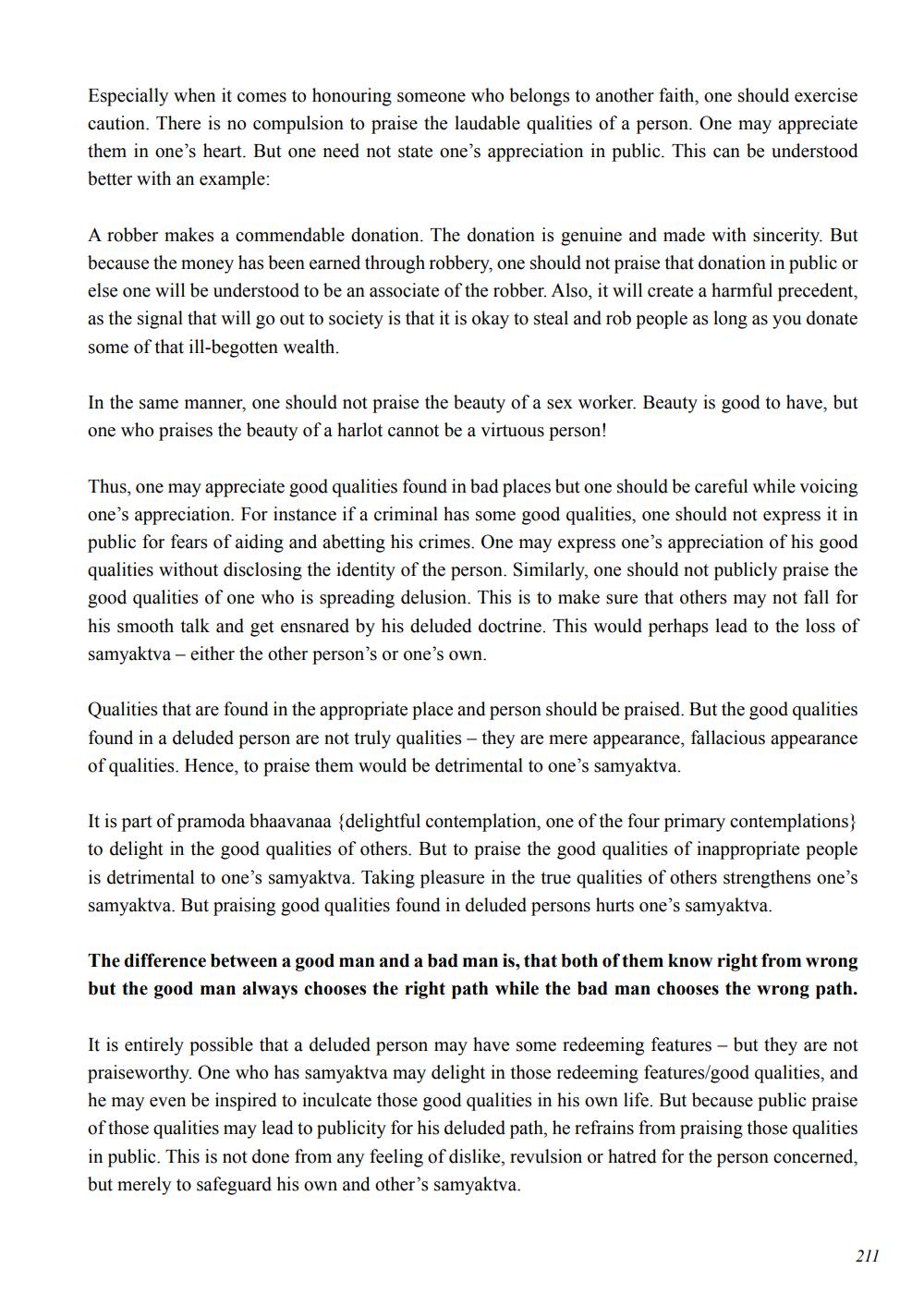________________
Especially when it comes to honouring someone who belongs to another faith, one should exercise caution. There is no compulsion to praise the laudable qualities of a person. One may appreciate them in one's heart. But one need not state one's appreciation in public. This can be understood better with an example:
A robber makes a commendable donation. The donation is genuine and made with sincerity. But because the money has been earned through robbery, one should not praise that donation in public or else one will be understood to be an associate of the robber. Also, it will create a harmful precedent, as the signal that will go out to society is that it is okay to steal and rob people as long as you donate some of that ill-begotten wealth.
In the same manner, one should not praise the beauty of a sex worker. Beauty is good to have, but one who praises the beauty of a harlot cannot be a virtuous person!
Thus, one may appreciate good qualities found in bad places but one should be careful while voicing one's appreciation. For instance if a criminal has some good qualities, one should not express it in public for fears of aiding and abetting his crimes. One may express one's appreciation of his good qualities without disclosing the identity of the person. Similarly, one should not publicly praise the good qualities of one who is spreading delusion. This is to make sure that others may not fall for his smooth talk and get ensnared by his deluded doctrine. This would perhaps lead to the loss of samyaktva - either the other person's or one's own.
Qualities that are found in the appropriate place and person should be praised. But the good qualities found in a deluded person are not truly qualities – they are mere appearance, fallacious appearance of qualities. Hence, to praise them would be detrimental to one's samyaktva.
It is part of pramoda bhaavanaa {delightful contemplation, one of the four primary contemplations to delight in the good qualities of others. But to praise the good qualities of inappropriate people is detrimental to one's samyaktva. Taking pleasure in the true qualities of others strengthens one's samyaktva. But praising good qualities found in deluded persons hurts one's samyaktva.
The difference between a good man and a bad man is, that both of them know right from wrong but the good man always chooses the right path while the bad man chooses the wrong path.
It is entirely possible that a deluded person may have some redeeming features - but they are not praiseworthy. One who has samyaktva may delight in those redeeming features/good qualities, and he may even be inspired to inculcate those good qualities in his own life. But because public praise of those qualities may lead to publicity for his deluded path, he refrains from praising those qualities in public. This is not done from any feeling of dislike, revulsion or hatred for the person concerned, but merely to safeguard his own and other's samyaktva.
211




